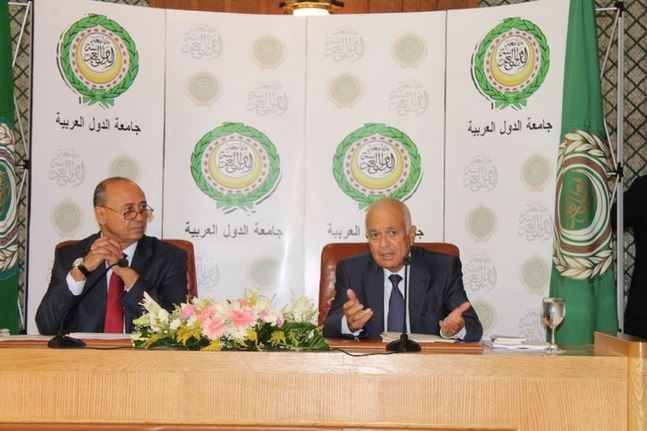 The undersigned national and global human rights organizations today called upon the League of Arab State’s (LAS) member States to substantially revise the draft statute of the Arab Court of Human Rights (the Arab Court) and ensure its full accordance with international human rights law and standards, including obligations assumed by LAS member States.
The undersigned national and global human rights organizations today called upon the League of Arab State’s (LAS) member States to substantially revise the draft statute of the Arab Court of Human Rights (the Arab Court) and ensure its full accordance with international human rights law and standards, including obligations assumed by LAS member States.
In the context of a conference organized in Cairo by the LAS and OHCHR on 20-22 May, and another that followed shortly after in Bahrain organized by the LAS and the Bahrain national institution for human rights on 25 and 26 May, the LAS Secretary General, Nabil Al-Arabi, announced in both meetings that the expert committee of the LAS had finalized its work and that the final draft would be submitted for the approval of the Ministerial Council in its next meeting, which is expected to take place in September 2014.
Our organizations strongly urge member States to amend the draft statute so as to provide for the possibility of individual victims to have direct recourse to the court. The very raison d’être of a regional human rights court is to ensure individuals access to justice and to guarantee their rights to effective remedies and to reparation for violations. By omitting not only this right, but also any means by which individuals can access the Arab Court, the current draft statue defeats the very purpose and objective of establishing this Court. We would remind member States of the promise made by the LAS itself and several of its members, since the start of the reform process of the LAS over the last few years, and particularly in the wake of the popular uprisings that erupted in several Middle East and North Africa countries in 2011, to establish an effective judicial mechanism that would protect individuals’ rights and freedoms in the LAS countries. Our organizations would firmly oppose the establishment of any court of human rights that does not provide for individual access to complain of violations.
Draft Article 19 of the Statute gives the right to access the Arab Court to any “State party when one of if its subjects claims that one of his [sic] human rights has been violated,” as well providing States parties with the option, at their discretion, of allowing non-governmental organizations to submit cases on behalf of individuals. Based on the decades of experience of existing regional human rights courts and UN human rights treaty bodies, States, for diplomatic and political reasons, virtually never make use of interstate complaints procedures. There is no reason to expect the situation would be any different with respect to the Arab Court. Nor should the possibility of NGOs bringing cases to the Court be at member States’ discretion. Draft Article 19 also allows for access to the Court by the Arab Human Rights Committee when it fails to reach an “amicable settlement in the case of an individual complaint”. However, this Committee, established under Article 48 of the Arab Charter on Human Rights, does not presently have any competence to consider individual complaints. The draft statute is silent as to how this competence will be extended.
Draft Article 19, to be at all effective, must therefore be amended to ensure that any person or group of persons or nongovernmental entities, directly or through their representations, may submit petitions to the Arab Court in cases of alleged violations of universally recognized human rights.
Other provisions of the draft statute, including those relating to the independence of the Court and its judges, the applicable law and jurisdiction of the Court, the admissibility of cases and the exhaustion of domestic remedies must also be amended to meet international human rights standards and serve as an effective means of access to justice.
The draft statute, elaborated by an expert legal committee of the LAS, was approved “in principle” by the LAS Summit in Kuwait in March 2014. The Summit’s decision, number 593, entrusted the expert committee to finalize the drafting of the statute and to refer it to the LAS Ministerial Council.
Our organizations have welcomed in principle efforts to establish an Arab Court of Human Rights. However, we strongly condemn the fact that both the LAS and the expert committee went about their drafting exercise without consulting with any civil society groups, despite their vast expertise in relevant issues, or any other stakeholders, despite several requests from civil society organizations to engage in the process. The entire process has been conducted behind closed doors and through opaque procedures that contravene basic principles of inclusive participation and transparency.
Until broad and meaningful consultations have taken place with national and global civil society organizations, national human rights institutions, members of the bar and judiciary, academic and independent experts and other interested stakeholders, including representatives of other regional human rights courts to benefit from the experience developed by these mechanisms, the LAS and its member States should refrain from referring this fundamentally flawed draft statute to the approval of the Ministerial Council.
It is the responsibility of the LAS and its members to act collectively and individually to ensure that the draft statue is amended and brought in line with international, including regional, human rights standards and practice.
Our organizations firmly believe that the following amendments are necessary if the draft statute is to serve as a basis for the establishment of a competent, independent and impartial Arab Court that provides for an effective remedy against human rights violations in the States parties. Among others:
i) The language of the draft statute, which currently uses the male pronoun exclusively, should be amended throughout so as to ensure that the statute is gender-inclusive;
ii) A provision should be added authorizing the Court to prescribe interim or provisional measures for the protection of petitioners in urgent cases where such measures are necessary to avoid irreparable harm to the victims of violations, and with which States parties must comply, as well as a provision to ensure protection measures for witnesses;
iii) Draft Article 3 should be amended to ensure that the decision to designate the host country is based on the commitment and compliance of the concerned State party with universal human rights law and standards, including through being party to all core international human rights instruments, and that the host country provides the necessary guarantees for the Court, including judges and staff, to operate in defence of human rights free from any undue interference, constraints or pressures. This should include guarantees for the protection of victims, their representatives, witnesses, and civil society associations from reprisal and restrictions;
iv) Draft Articles 6, 7, 8 and 15 should be amended or strengthened to ensure that: a) the nomination of candidates and election of judges is based on transparent and non-discriminatory procedures that protect against undue, inappropriate or unwarranted State interference, and that takes full account of appropriate personal and legal qualifications, gender balance, and a fair representation of different legal systems; b) the judges sit in their individual capacity, not as representatives of their home State, and serve for a single, lengthy term with a guaranteed pension; and c) the judges can only be suspended or removed from office for reasons of incapacity or behaviour that renders them unfit to discharge their duties, following an appropriate procedure, established in advance, and that guarantees the rights of the concerned judge to a fair hearing incorporating all due process guarantees;
v) Draft Article 16, which sets out the subject matter jurisdiction and applicable law of the Court, should be amended to ensure that in referring to the provisions of the Arab Charter, the Court at a minimum does not provide interpretations which conflict with States’ other obligations under international law and instead applies the most protective standard of human rights law that applies in the State concerned;
vi) Draft Article 18 is amended to ensure that the requirement of exhaustion of domestic remedies does not have the effect of preventing victims of human rights violations from accessing the Arab Court on spurious grounds, and that the Court is provided extensive discretion to decide on admissibility of cases, with a view to ensuring maximum protection of human rights; and
vii) Draft Article 19 on access to the Court is extensively amended to ensure that: a) all individuals within the territory of a State party, or subject to its jurisdiction, are entitled to have access to the Arab Court when they claim to be a victim of a violation, by any of the contracting parties, that falls under the jurisdiction of the Court; and that States do not hinder access to the Court, in particular by providing for the effective protection of victims and other participants in the proceedings and by ensuring that they are not subjected to any form of pressure or reprisals as a result of their participation in the proceedings before the court; b) all obstacles that may limit NGO access to the Court are removed, including the system by which States accept such access, and to this end, ensure that any NGO, not only those accredited in a respondent State, can bring a complaint before the Court; and c) other avenues to access the Court are provided, including for individuals or NGOs to join proceedings as interested parties or to submit amicus curiae briefs, third party interventions or expert opinions.
The undersigned national and global human rights organizations call on the LAS, and its member States to desist from immediate action on the draft statute and to extend the process before the draft statute is adopted in order to allow for appropriate and meaningful consultation with civil society organizations. The undersigned organizations affirm their willingness to engage in such consultation.
Signed by
1. AMAN NETWORK for Rehabilitation and Defending Human Rights
2. Amman Center for Human Rights Studies
3. Al Haq
4. Amnesty International
5. BADIL Resource Center for Palestinian Residency & Refugee Rights
6. Bahrain Forum for Human Rights
7. Bahrain Human Rights Observatory
8. Bahrain Human Rights Society
9. Bahrain Transparency Society
10. Cairo Institute for Human Rights Studies
11. Center for Defense of Liberties and Civil Rights “Hurryyat”
12. Doustourna – Tunisia
13. Gulf Center for Human Rights
14. Gulf Civil Society Associations Forum
15. Human Rights Information and Training Center
16. Human Rights Watch
17. International Commission of Jurists
18. International Federation for Human Rights
19. Jerusalem Legal Aid and Human Rights Center
20. Khiam Rehabilitation Center for Victims of Torture
21. Legal Agenda
22. Lualua Center for Human Rights
23. Ligue Djiboutienne des Droit Humains
24. Open Society Foundations – Arab Regional Office
25. Palestinian Human Rights Organization
26. Ramallah Center for Human Rights Studies
27. Sudanese Human Rights Monitor
Share this Post

